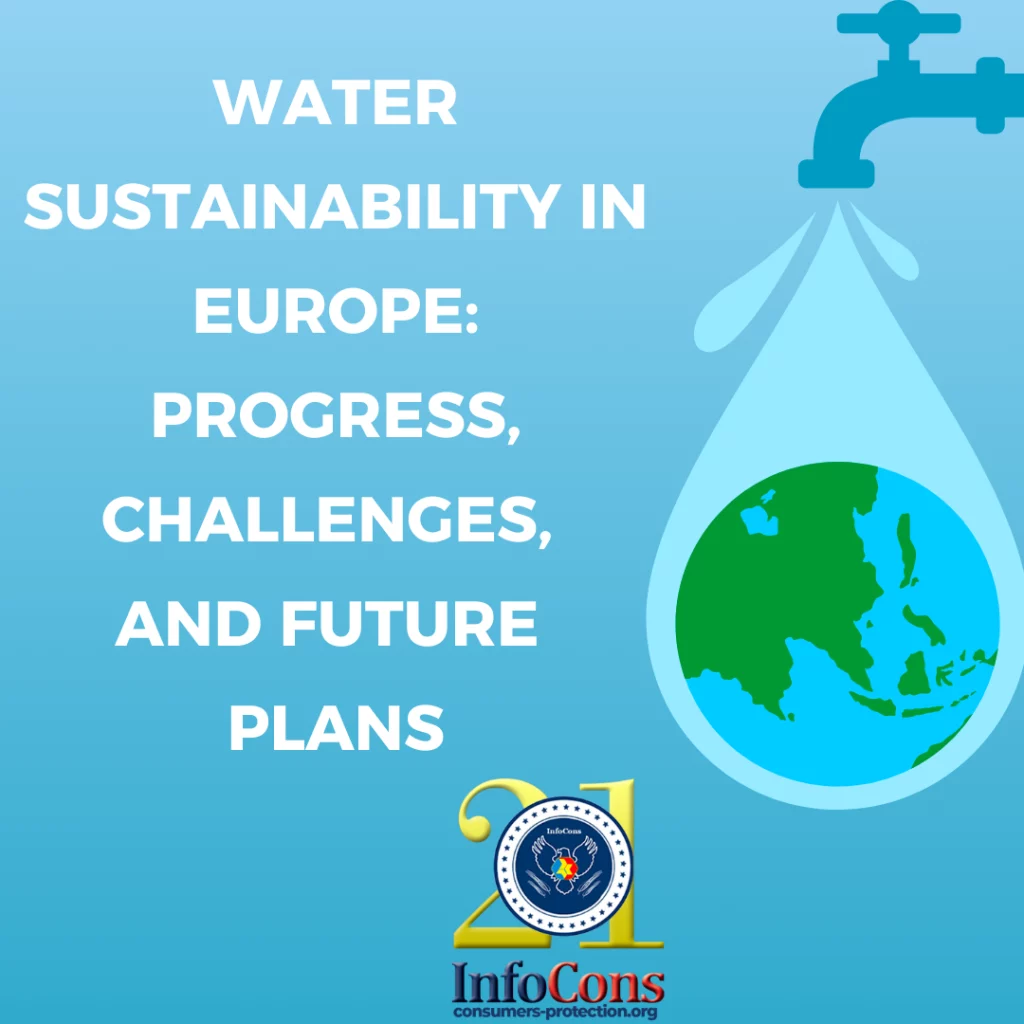
Water is the foundation of life, playing a critical role in sustaining both human health and the environment. Beyond its essential function for drinking and hygiene, water supports agriculture, energy production, and economic development. It also plays a crucial role in climate regulation, ensuring ecological balance. However, Europe’s water resources are under increasing pressure due to pollution, industrial activities, and climate change, making sustainable water management more urgent than ever.
Pressures on Water Resources : Pollution and Scarcity
Despite its abundance in some regions, water remains a scarce and vulnerable resource. It is increasingly threatened by pollution from industrial chemicals, pesticides, pharmaceuticals, and nutrient runoff. Additionally, climate change is intensifying droughts and water scarcity across Europe, placing further strain on freshwater and marine ecosystems. Addressing these challenges requires coordinated efforts to safeguard water quality and availability.
Read also : Did You Know … How to Recognize and Prevent Mpox ?
EU Water Policy : Protecting Resources and Ecosystems
The European Union has established one of the world’s most comprehensive water protection frameworks. Under the Water Framework Directive, EU policies aim to preserve water quality, protect aquatic ecosystems, and ensure access to clean drinking and bathing water. As a key component of the European Green Deal, these regulations promote sustainable water use and resilience in the face of climate change.
Progress in Water Management: Key Achievements
Recent reports from the European Commission highlight significant advancements over the past six years in improving water governance. Key achievements include:
- Enhanced Monitoring: More effective tracking of surface and groundwater conditions to identify risks and improve water quality.
- Better Flood Risk Management: Implementation of improved strategies to mitigate flood risks and protect communities.
- Stronger Enforcement of Water Regulations: Ensuring compliance with EU water laws to prevent pollution and over-extraction.
Read also : Winter Tips for Avoiding Frozen and Burst Pipes in Your Home
Ongoing Challenges and Areas for Improvement
Despite progress, there is still work to be done to achieve sustainable water management across Europe. Some of the most pressing concerns include:
- Limited Ecological Status of Water Bodies: Only 39.5% of surface waters have achieved a good ecological status, indicating the need for further restoration efforts.
- Rising Water Scarcity and Droughts: Many EU regions are facing increasing water shortages, necessitating urgent action to improve water efficiency and conservation measures.
Looking Ahead: The EU Water Resilience Strategy
To address these ongoing challenges, the EU is developing a Water Resilience Strategy that will outline measures to protect water resources and ensure long-term sustainability. The main objectives include:
- Ensuring all Europeans have access to high-quality and sufficient water.
- Strengthening measures to combat pollution and safeguard aquatic ecosystems.
- Promoting sustainable water management practices to enhance climate resilience.
Read also : A Digital Shift in Education – Online Learning Grows by 3% in 2024
A Call for Collective Action
Water is a shared resource that requires collective responsibility. While the EU has made strides in water protection, continued collaboration between governments, industries, and communities is essential to secure water for future generations. By implementing innovative policies and prioritizing conservation efforts, Europe can ensure that its water resources remain clean, accessible, and sustainable.
Source : European Commission
InfoCons – European Organization for Consumer Protection and Promotion of Programs and Strategies , a full member of the World Organization Consumers International, founding member of the Federation of Consumer Associations, and member of ANEC .